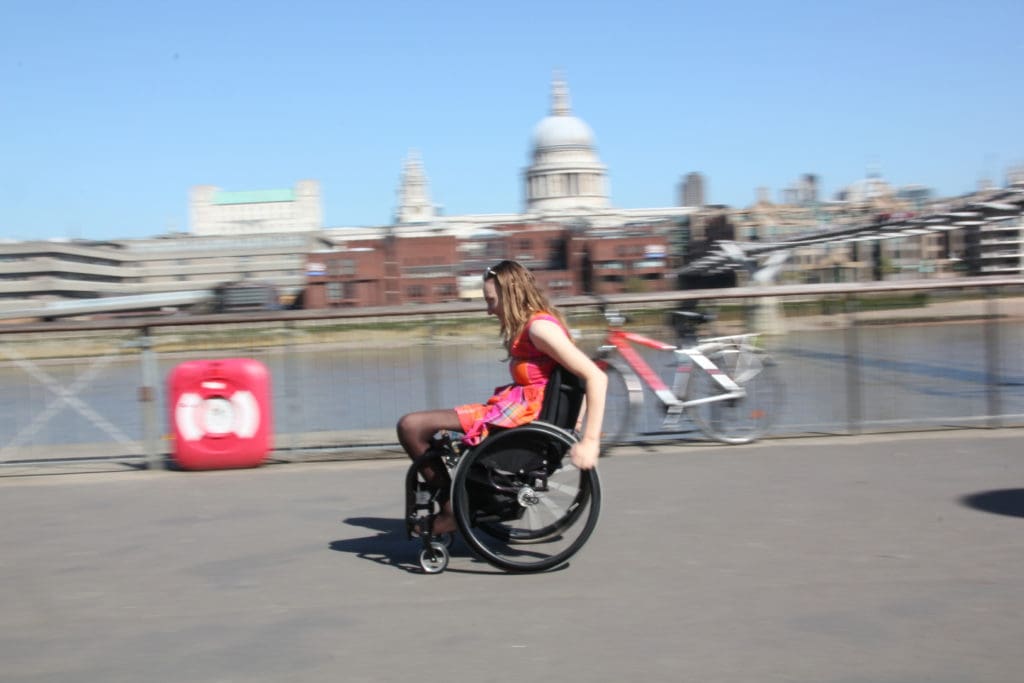Having a daughter with a spinal cord injury
2 March 2016

This month of our anniversary year we are turning the spotlight on family members of people with spinal cord injury and how Back Up supports them.
Just one week after Mark’s daughter Sarah bought her first car and started a new job, a sudden illness left her permanently paralysed from the shoulders down. “We were a normal everyday family,” Mark remembers. “Now I ask myself: what’s normal?”
Beforehand, Mark and his family weren’t aware of the impact a spinal cord injury could have on someone’s life. “We only knew what we saw on television and in the papers,” he says. As soon as the injury happened, the family felt overwhelmed.
Quickly, they had to make radical changes to their every day lives. Caroline, Mark’s wife, had to give up her job to move to the north of England, where their daughter was hospitalised.. “For a year I travelled every Thursday to join them and returned home on Sunday nights,” Mark says. “The family was split up.”
Sarah’s injury changed things forever. “Our lives will never be the same, we will have to adjust, we’re fighting with life,” Mark says. “There’s a lot going on at the moment and we can only cope with one thing at the time. Our daughter is our priority no matter what.”
According to research, half of parents of children with a spinal cord injury feel a sense of responsibility for the injury. “We feel guilty all the time,” Mark says. “We can have a life and at the moment our daughter has nothing except the front room of our house, which I call a prison cell.”
When Sarah was discharged from hospital, the family planned her return home with a care agency. They had to adapt the house to Sarah’s needs and arrange for a care team to sleep and live in the house full time. “Having carers now living in our current house adds more pressure to the family situation, The house is a different place now but we will survive one way or another,” Mark says.
The devastating experience of spinal cord injury often causes feelings of depression and anger amongst family members. Research found that 41% of mothers and 36% of fathers are diagnosed with Post Traumatic Stress Disorder.
“We are a quiet family so it’s very hard to open up our lives to strangers,” Mark explains. “Sometimes you just want to be left alone and not have to repeat the situation over and over again.”
Even though Mark finds it hard to talk about what he is going through, he got in touch with Back Up and was paired with a mentor who had a spinal cord injury similar to his daughter. Their Back Up mentor provided guidance on accessing information and listened to his issues.
Mark thinks Back Up’s family mentoring service has helped him to feel more positive about the future. “Meeting people or families in similar situations helps a lot because you are all going through exactly the same issues,” Mark says. “Having a mentor who is almost in the same situation as our daughter and talking to that person and her family was very important to us.”
In the future, they hope that Sarah will also want to talk to other people who have sustained a spinal cord injury. “But that will only happen when she is ready,” Mark says.
Mark advises all parents going through a similar situation to take one day at a time. Even though there will be times when you feel alone and sorry for yourself, Mark thinks it’s important to be strong. “Never give up on your loved ones because they need you now more than ever,” Mark says.
Are you a parent of someone with a spinal cord injury? Our mentors can support you! Find out more information here

